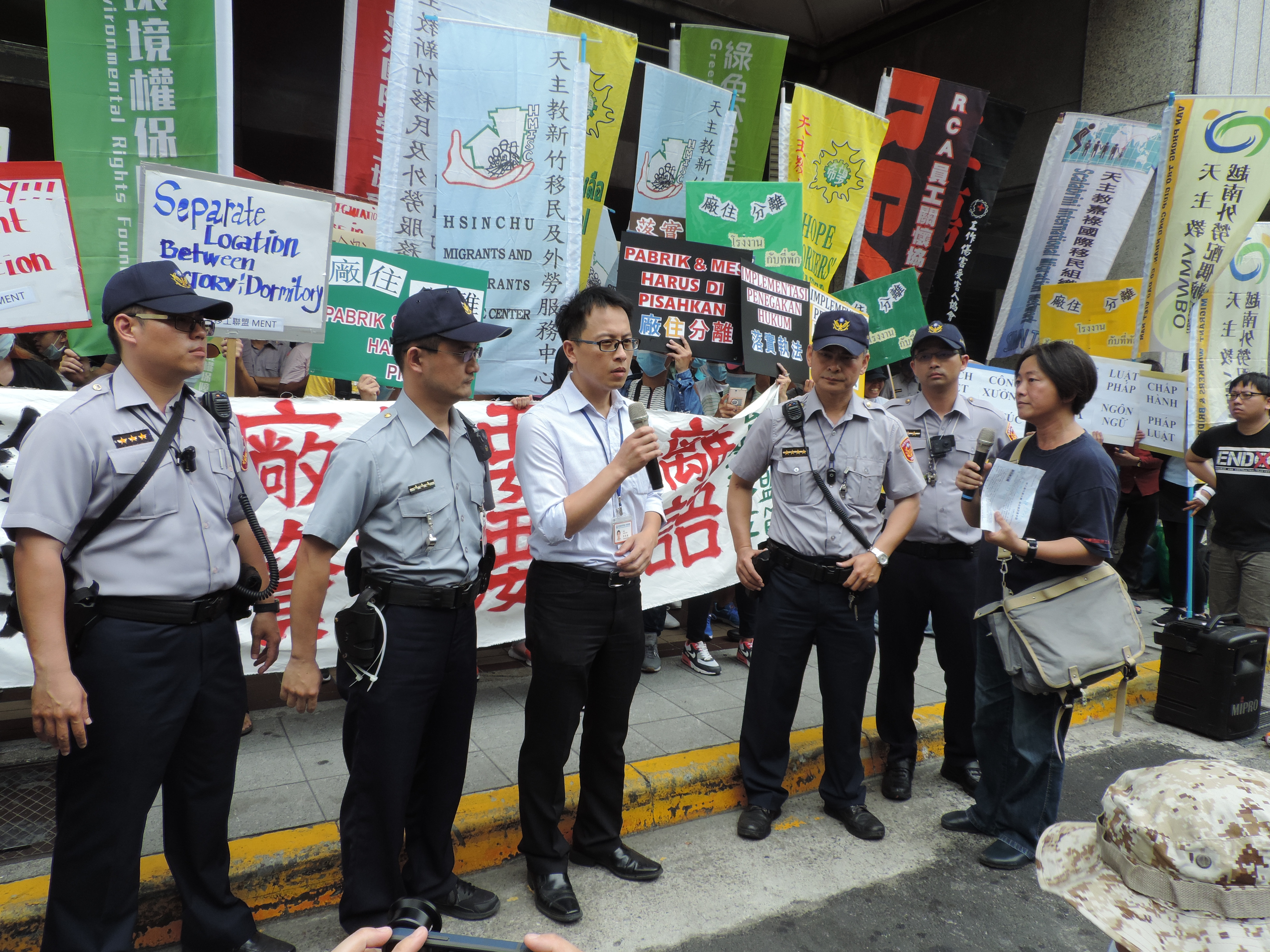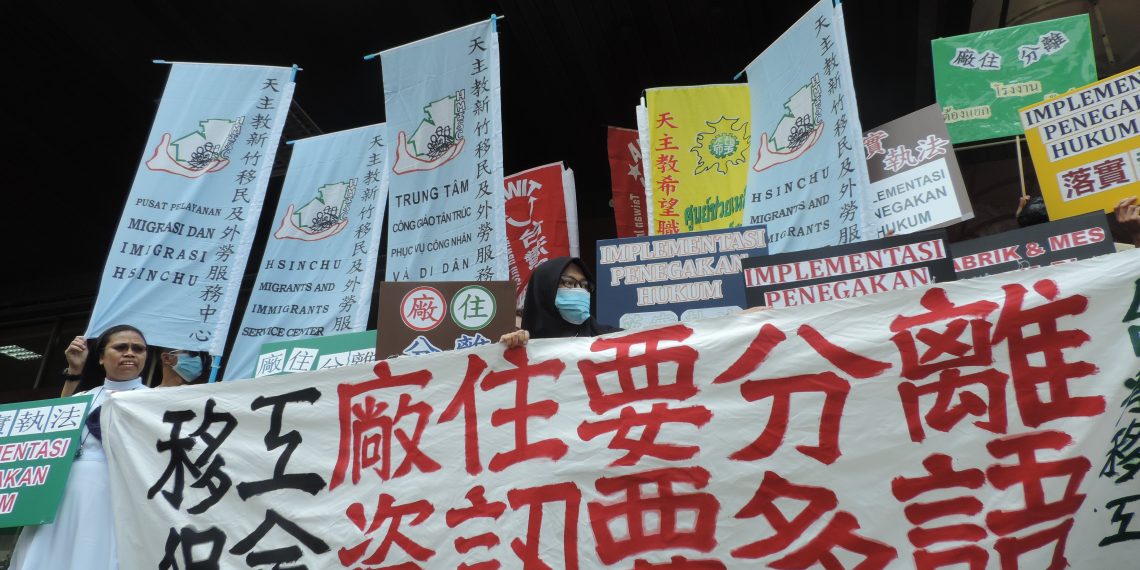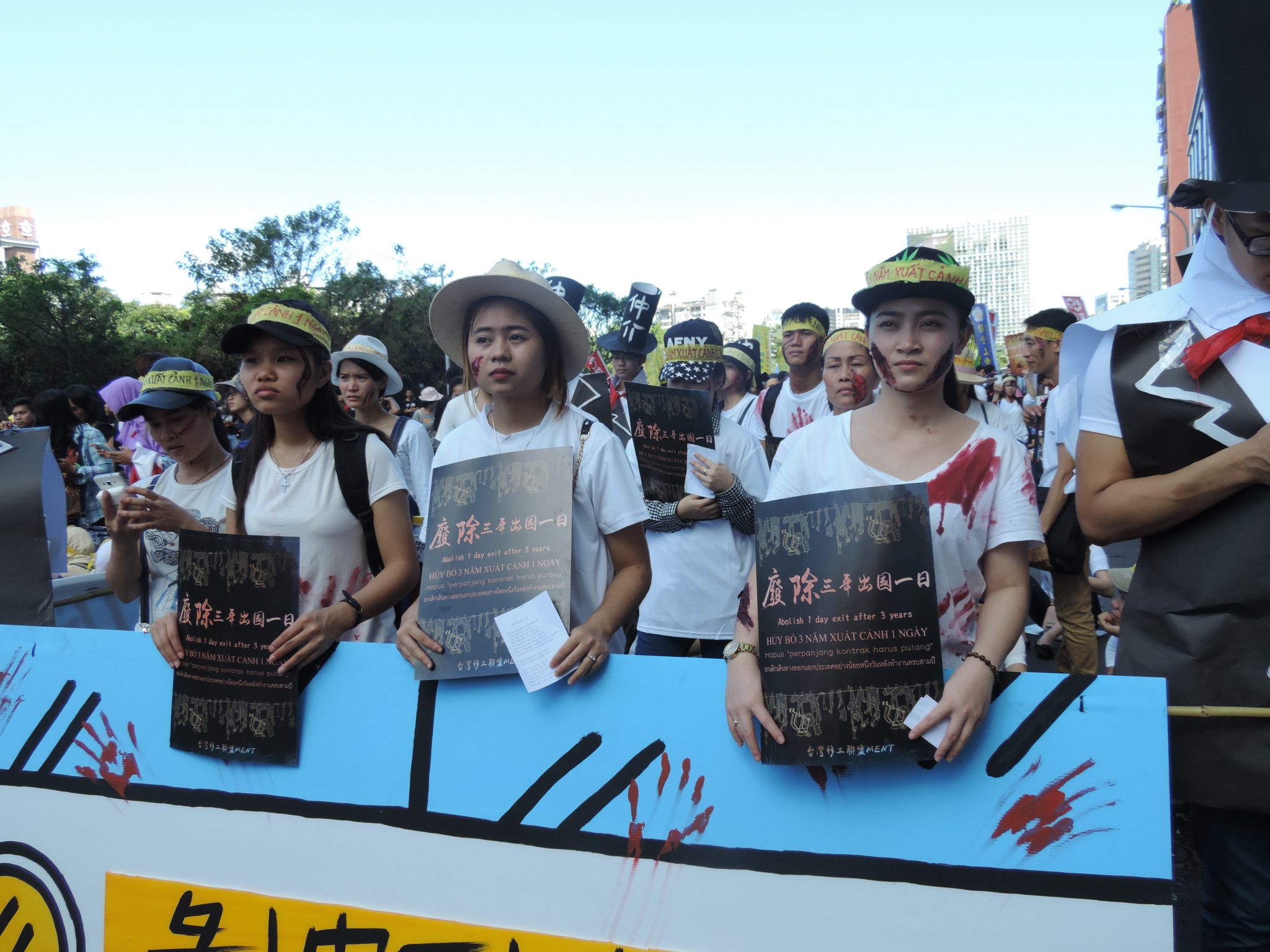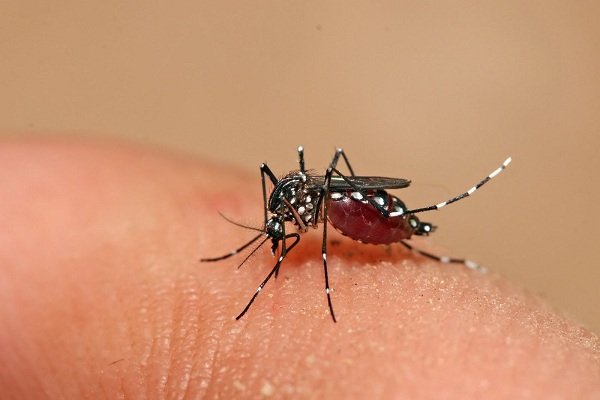Taipei, May 23 (CNA) Taiwan’s government is considering regulations to disallow dormitories for migrant workers inside factory complexes, in the wake of two recent factory fires that claimed the lives of eight migrant workers, a labor ministry official said Wednesday.

“We will discuss the matter with the relevant government agencies — the Ministry of Economic Affairs and the Ministry of the Interior,” said Huang Wei-cheng (黃偉誠), a section chief in the Ministry of Labor’s Workforce Development Agency.
He said an inter-ministerial meeting on the issue will be held in June but he could not promise at this point that labor groups will be involved in the discussions as they have requested.
Huang was responding to two major demands by non-governmental groups and migrant workers, who staged a protest outside the agency to call attention to housing safety issues for migrant workers.
One of the demands made by the protesters was for the relocation of migrant factory worker dormitories at a safe distance from the factories.
The protesters also called for safety laws and regulations that detail the rights and obligations of migrant workers in their native languages.
In December 2017, six Vietnamese migrant workers died in Taoyuan City in a fire that engulfed their dormitory, which was located on the upper level of a factory warehouse made of sheet iron. The allegedly illegal structure was next to a factory run by Sican Co., which produces solar control window films.
Four months later, a blaze at a facility operated by Chin Poon, a printed circuit board factory in the same city, claimed the lives of six firefighters, as well as two Thai migrant workers who were trapped in a dormitory inside the factory complex.
The two cases exposed the shabby and unsafe conditions migrant factory workers are forced to live in, said Hsu Wei-tung (許惟棟), a member of the Migrants Empowerment Network in Taiwan (MENT).
He said the dormitories usually comprise many small windowless compartments and have only one exit.
In the case of the Chin Poon dorm, Hsu said, it was a 400-ping (1,322-square meter) space on the fourth floor that housed about 300 migrant workers from Vietnam, Thailand and the Philippines, with 10-16 people to a compartment.
He said that if law enforcement agencies had thoroughly inspected the dormitories for fire hazards and fined the employers for failing to correct the problems, the fatal fires could have been avoided.
The Taoyuan City government has refused to publicize the safety inspection records of Chin Poon or Sican, but a copy of Chin Poon’s record, recently obtained by a lawmaker, showed that the company had completed the safety checklists, which were not certified by any city government official, according to Hsu.
The safety record stipulates standards for board and lodging of migrant workers, and employers are obliged to complete a self-inspection checklist and present it to the local government for verification within three months of their employees’ arrival in Taiwan.
Wu Ching-ju (吳靜如) of the Taiwan International Workers’ Association said the groups are demanding that the document, along with other relevant laws and regulations pertaining to migrant workers, be translated into their native languages.
In response, Huang said the labor ministry is working on the translations of the relevant laws and regulations and will post them online.







